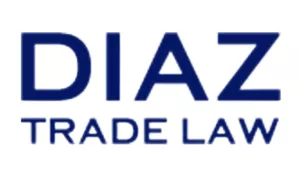The U.S. Attorney's Office for the Northern District of California and the Counterintelligence and Export Control Section (CES) of the Department of Justice's (DoJ) National Security Division announced that Cadence Design Systems, Inc. of San Jose, California, agreed to plead guilty to resolve criminal violations of export controls.
As part of the plea agreement, Cadence will pay criminal penalties of nearly $118 million.
In addition to the charges, the Department of Commerce's Bureau of Industry and Security (BIS) also announced the resolution of a civil enforcement action against the company in which Cadence agreed to pay over $95 million in civil penalties.
The DoJ and BIS have coordinated the resolution of the parallel investigation, and each agreed to a partial credit against their fine for payments made to satisfy the other agency's fine. Under the coordinated agreement, Cadence will pay criminal and civil penalties of more than $140 million.
Cadence committed criminal violations of the export control laws by selling hardware, software, and semiconductor design intellectual property to the National University of Defense Technology (NUDT) in China. NUDT was added to the Department of Commerce's Entity List in February 2015. The university was involved in the development of supercomputers with applications for military and nuclear explosive simulations.
Cadence and its Chinese subsidiary engaged in a conspiracy to commit export control violations by exporting this technology to NUDT without obtaining the requisite licenses from BIS.
Court documents reveal that Cadence continued exporting software even after acknowledging via email that NUDT had been added to the Entity List.
In negotiating the plea agreement, the DoJ considered that Cadence was cooperative when the investigation commenced, but also noted the company's failure to voluntarily disclose the misconduct to NSD. Accordingly, the amount of the monetary penalty reflects a 20% reduction of the statutory maximum fine.
This case demonstrates the government's priority in enforcing export controls and the importance of prioritizing compliance programs.
Read more:
- The Importance of Regular Export Compliance Training for Your Business
- Building a Strong Export Compliance Plan
- Building & Maintaining an Effective Export Compliance Plan
- Introduction to Export Controls
- ICYMI: State Department Reaches $200M Settlement with RTX Corporation for Export Violations
The content of this article is intended to provide a general guide to the subject matter. Specialist advice should be sought about your specific circumstances.


